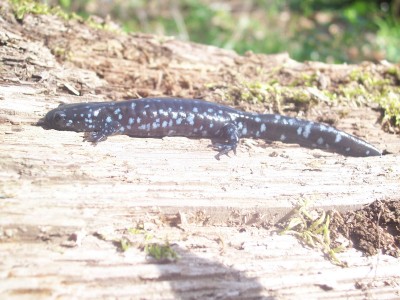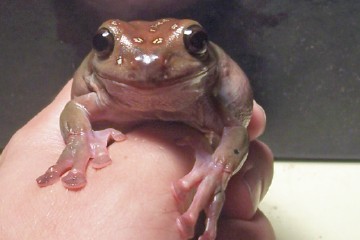Amphibian Health Examinations and Disease Monitoring
Topic: Places to go
US Fish & Wildlife Service National Conservation Training Center
Course Announcement:
Amphibian Health Examinations and Disease Monitoring (ECS 3102)
February 6-8, 2007 Shepherdstown, WV
Who is the intended audience?
Anyone involved in planning, training and conducting amphibian field
surveys, inventories and assessments. Anyone involved in amphibian
handling, tissue sampling, and disease & malformation identification. In
particular, this course is designed to provide biologists with information
needed to train their own amphibian survey crews on proper methods to
conduct surveys to minimize handling stress, and recognize disease and
malformation.
Who is teaching the material?
Principle instructors are scientists from the US Geological Service
National Wildlife Health Center (NWHC) out of Madison, Wisconsin. We will
also have amphibian researchers as guest speakers.
What will the course cover?
Participants will be able to conduct a complete health assessment for
frogs, tadpoles and salamanders by the conclusion of this course. Also
covered:
• Importance of amphibian disease and population declines
• Amphibian health overview
• Understanding history and epidemiological data
• Disease, malformation, and biosafety issues
• Hands-on laboratory session for practice with handling frogs,
tadpoles and salamanders and conducting health assessment and shipping
techniques
What is the length of the course?
3 days of classroom and laboratory instruction at the National Conservation
Training Center. College credit is available for completing this course.
How to register: Register on-line at
https://doilearn.doi.gov.
Non-DOI people need to click on “Public Catalog Login”. Search on the
course title or course code “ECS3102. Click on the title of the course
when it pops up for more class details. See “Apply” button at the
bottom. Fill out application and note the phone number at the bottom of
the form for calling in a credit card number.
Tuition: $510.00 for non-USFWS, BLM or NPS employees.
Information on NCTC:
http://training.fws.govQuestions?
Contact Laura Eaton-Poole at 304-876-7473 /
laura_eaton@fws.gov or Cathy
Johnson at
304-876-7441 /
Catharine_P_Johnson@fws.gov.
Posted by wendellsfrogblog
at 1:38 PM EDT




